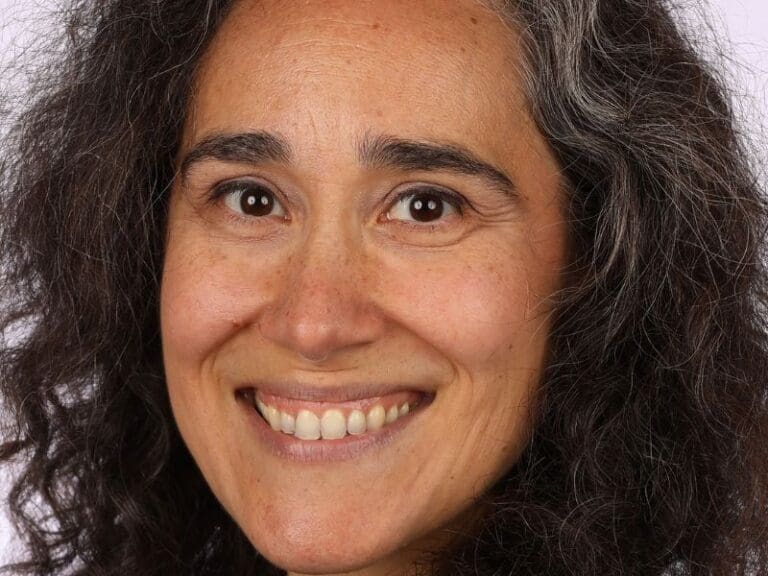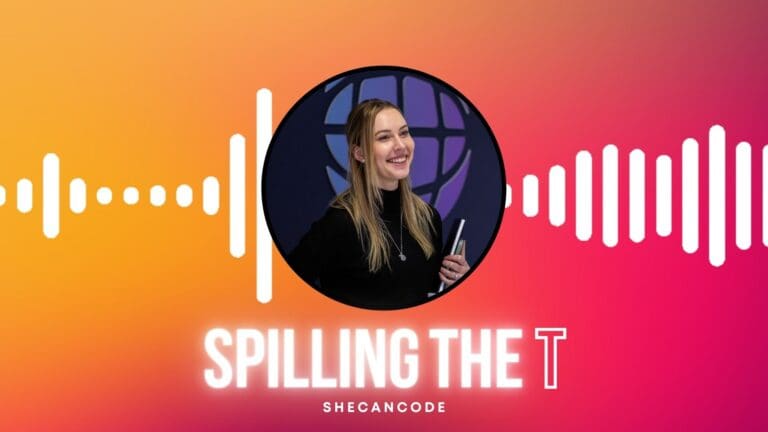Breaking into tech can feel like stumbling down a winding road with no clear end in sight.
My journey certainly wasn’t straightforward. I started out as a musician, studied anthropology, indulged in true crime, and somehow pieced it all together. It’s been a zigzagging maze, but it’s shaped me into the cybersecurity practitioner I am today.
Here’s my story of curiosity, speaking up, and unexpected detours.
Late Nights Playing Music to Late Nights Writing Code
My interest in tech began in secondary school during a programming class. I spent hours coding and sharing ideas in chat forums, but computers still felt more like a hobby than a career. So, I pursued another passion: music.
For university, I moved to New York City and lived the bohemian dream as a gigging musician. But the glamour wore off quickly, replaced by long nights, pay disputes, and burnout.
Unlike other artists, I craved stability. I asked myself, “What else can I do?” One answer stuck: computers.
Going back to university for computer science felt like reconnecting with an old friend. But with the “dot-com boom” in full swing, I couldn’t always get into the courses I wanted. I had to take whatever else was available, classes like archaeology or linguistics.
I finished a degree in anthropology before completing a double degree in computer science. That detour paid off. My humanities background sharpened my understanding of human behaviour, an essential skill in cybersecurity, where technology and people intersect.
Where True Crime Meets Tech
In university, I took a neural networking class that introduced me to artificial intelligence. One project changed everything. I recreated CATCH, a programme that spotted patterns in homicide cases using unsupervised self-organising maps. As a true crime fan, it was thrilling to see tech help nab the bad guys.
But I didn’t stop there. I reached out to the original developers and joined the conversation. That might not sound radical now, but at the time, being one of the few women in the room, it took guts to speak up. Luckily, they were really receptive, offering to share some insights into how their programme worked as well as various research papers they had published on it.
It was the first time I merged my love of tech with real-world problem-solving. I was hooked. In my spare time, I even started hunting forensic artifacts. For me, it wasn’t just about learning tools. It was about cracking complex problems with creativity.
Finding Your Voice in Tech
By the time I graduated, the “boom” had gone bust, and jobs were scarce. So, I went to graduate school for a Master’s in computer forensics, a fairly new field back then. The curriculum wasn’t even polished yet, and a lot of learning meant figuring things out on my own. That scrappiness became an asset.
Collaborating with like-minded students, I built malware sandboxes, reverse-engineered malicious code, and explored emerging tools. Each project reinforced a key lesson: you learn best by doing.
One pivotal moment came when I got involved with Volatility, now a popular memory forensics tool. Back then, it was mostly unknown. Fuelled by curiosity and a strong desire to contribute, I contacted the developer and eagerly immersed myself in the community. I hunted bugs, submitted fixes, and wrote documentation.
I was often the only woman in the forum, but I didn’t let that stop me. I asked questions, shared solutions, and let my work speak for itself. That experience taught me I shouldn’t wait for permission to participate. I just had to show up, be heard, and be visible.
Taking Chances and Proving Yourself
I eventually moved into consulting at a software firm. There’s one job interview I’ll never forget. The hiring manager gave me a coding problem on a whiteboard, and instead of solving it as he expected, I proposed an unorthodox yet more efficient solution, which he hadn’t fully thought of previously.
That moment sealed the job offer and reminded me to trust my instincts. Sometimes, the bold move is the right one, even if it raises eyebrows.
Consulting opened new doors. I tackled everything from creating a workaround for one of our products so that it could interact correctly with a hospital’s unexpected Active Directory setup, to customizing forensic tools, and getting more involved in open-sourced projects. These unpredictable projects taught me to think on my feet and trust my intuition.
And they highlighted another valuable lesson: success in tech isn’t about having all the answers. It’s about staying curious and being willing to dive in.
Advice for Women Entering Tech
Looking back, there was no master plan. I just leaned into discomfort and accepted mistakes as part of the process. If you’re considering a career in tech, here’s what I recommend:
- Start now. Don’t wait for the “right time.” Jump in. Make mistakes. Learn as you go.
- Own your path. The twists and turns that seem off course (like that anthropology degree) might have more to offer than you think.
- Build your network. Seek out mentors and communities. Groups like SheCanCode are a great place to start.
- Speak up. Your perspective is unique. Your background and insights can change the future, so make them known.
Your Path Leads Somewhere Great
You don’t need a conventional path to thrive in tech. Whether you come from music, the humanities, or somewhere else entirely, there’s space for you.
Stay curious. Take risks. Missteps are just part of the story.
The future of tech isn’t fully paved yet, and that’s a good thing. There’s still room for you to help build it.
If I could do it, so can you.








